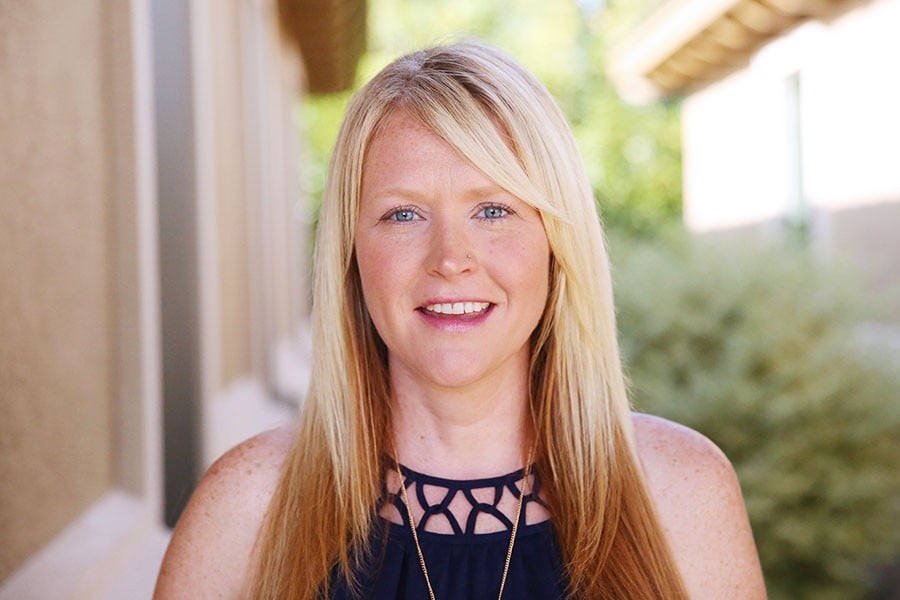How to Choose a Marriage Counselor: 10 Practical Ways

Unlock Daily 30-Sec Tips for a Happier Relationship
👉 Subscribe FREEKey Takeaways
Marriage.com AI Quick Summary
Finding the right support for a struggling marriage can feel overwhelming, especially when emotions are running high.
What if there was someone who could truly listen, understand both sides and guide you through the toughest conversations?
Marriage counseling often brings that sense of relief and direction, but knowing how to choose a marriage counselor is a decision that requires care.
After all, this is someone who will be part of your most personal moments, helping you untangle challenges and rebuild connections.
Trust matters, and so does expertise… but how do you know if their approach fits your needs?
It is not just about qualifications; it is about finding someone who aligns with your values and makes both of you feel comfortable. Because when you are ready to take that step, every detail counts.
What is marriage counseling?
Learning how to choose a marriage counselor starts with understanding what marriage counseling is and why it is important.
Couples therapy, commonly known as marriage counseling, involves a couple, whether or not they are married, undergoing a series of sessions to resolve issues and work together to improve their relationship.
Marriage counseling equips the couple with knowledge and tools to communicate better, work on differences, and learn skills to handle future issues.
The series of sessions are handled by a licensed marriage counselor who is equipped to listen, understand, and help the couple.
5 reasons why choosing the right marriage counselor is important
Finding the right marriage counselor is more than just scheduling an appointment; it is about finding someone who truly understands your relationship.
This choice can deeply impact the progress you make together, influencing trust, communication, and growth. Let us explore why choosing a marriage counselor who is the right fit matters so much.
1. Establishing trust and comfort
A good counselor creates a safe space where both partners feel heard and valued. If either of you feels judged or uncomfortable, it can block progress and make sharing openly much harder.
Trust is the foundation for any meaningful counseling journey; without it, breakthroughs are unlikely. Choosing a counselor who resonates with both of you helps build that critical sense of security early on.
Over 200 studies show that couple counseling improves relationship satisfaction. These improvements are often measured using the Dyadic Adjustment Scale (DAS) and have been observed immediately after treatment and for up to two years later.
2. Tailoring the approach to your needs
Every couple is unique, with different challenges and dynamics. A counselor who understands this will adjust their methods to suit your specific situation instead of relying on a one-size-fits-all approach.
When the guidance feels personal and relevant, it becomes easier to connect and grow together. This makes choosing a marriage counselor with flexibility and insight so important.
3. Encouraging honest communication
The right counselor knows how to gently guide conversations, making it easier to express even the most difficult emotions. They help create a balanced environment where both voices are equally valued.
Poor communication can widen gaps in a relationship, but a skilled counselor can help bridge them with understanding and care, creating a new way forward for both of you.
4. Supporting long-term relationship health
Counseling is not just about resolving current conflicts; it is about setting your relationship up for future success. A good counselor equips you with tools to handle challenges, build resilience, and nurture your bond over time.
When you choose the right professional, the positive impact often lasts far beyond the sessions, helping your relationship thrive.
5. Saving time, money, and emotional energy
The wrong counselor can lead to frustration, wasted sessions, and even deeper conflicts. This adds unnecessary strain, both financially and emotionally.
By taking the time to choose carefully, you are more likely to see meaningful results sooner. Investing in the right counselor saves you from the trial-and-error process, making your journey smoother and more effective.
What are the different types of therapists trained in couples counseling?
When it comes to couples counseling, finding the right therapist can feel like a big decision.
Each professional brings unique skills and training to the table, so understanding their roles can help you decide what type of therapist is best for marriage counseling. Let us take a closer look at the options.
-
Licensed Marriage and Family Therapist (LMFT)
LMFTs specialize in relationships and family systems, making them a popular choice for couples counseling. They are trained to identify patterns affecting your connection, whether they stem from communication issues or deeper emotional struggles.
With their focused expertise, LMFTs work to strengthen bonds and help couples navigate conflicts in healthier, more meaningful ways.
-
Licensed Clinical Social Worker (LCSW)
LCSWs approach therapy with a holistic view, often considering the broader factors affecting a relationship—like stress, work-life balance, or family dynamics.
They are skilled in both emotional support and practical problem-solving. Their training equips them to guide couples through challenges while addressing external pressures that may influence the relationship.
-
Licensed Mental Health Counselor (LMHC)
LMHCs provide a safe, supportive space for couples to explore their feelings and resolve conflicts. They are well-versed in therapeutic techniques to address anxiety, stress, and emotional barriers within relationships.
Their approach often blends understanding with actionable strategies, helping couples improve communication and strengthen their partnership over time.
-
Clinical Psychologist (CP)
Clinical psychologists often focus on the deeper psychological factors influencing relationships. They are highly trained in diagnosing and treating mental health issues that may affect couples, such as trauma or depression.
With their expertise, they help partners uncover underlying issues while offering tools to rebuild trust and emotional connection.
How to choose a marriage counselor: 10 tips
Finding the right marriage counselor can feel like a big step, especially when your relationship needs support. It is not just about credentials or availability—it is about finding someone who truly understands both of you and makes you feel safe.
From trust to expertise, there are many factors to consider when choosing a marriage counselor. Let us explore how to choose a marriage counselor who fits your unique needs.
1. Check their credentials and training
Start by ensuring the counselor is licensed and trained in couples therapy. Look for certifications like LMFT, LCSW, or similar qualifications. These indicate they have specific expertise in helping couples.
A well-trained counselor understands the complexities of relationships and knows how to guide you toward meaningful solutions. Their background matters, so do not hesitate to ask about their experience.
2. Understand their approach to counseling
Every counselor has a unique method—some focus on communication, while others dive deeper into emotional or psychological aspects. It is important to choose someone whose approach aligns with your goals.
For example, if you are looking to improve day-to-day communication, a practical approach might work best. Understanding their methods helps you decide how to choose a good marriage counselor for your situation.
3. Look for experience with similar issues
Not all counselors specialize in the same types of challenges. If you are facing infidelity, financial stress, or parenting conflicts, finding someone with experience in those areas can make a big difference.
They are more likely to understand the nuances and offer tailored strategies. This focus can help you feel confident that you are in capable hands.
A review analyzed 440 samples from 5 articles to examine the effectiveness of marital counseling on marital satisfaction. Results indicate that marital counseling is crucial for improving marital satisfaction across cultures and religions, helping couples resolve conflicts, and improving their relationships.
4. Consider their communication style
A counselor’s communication style can greatly influence how comfortable you feel during sessions. Some are more direct, while others take a softer, more empathetic approach.
Pay attention to how they respond during your initial consultation. Feeling understood and supported is key to making progress together as a couple.
5. Ensure they are impartial
A good marriage counselor remains neutral, never taking sides or showing bias toward one partner. This balance is essential for creating a safe and productive environment.
When both partners feel equally valued, this encourages honest sharing and collaboration. Be cautious if you sense favoritism, as it can undermine trust and hinder progress.
6. Discuss logistics and availability
Practical details matter, too. Consider their location, session length, fees, and availability.
Do their hours work with your schedule?
Are their rates within your budget?
Addressing these questions early ensures you can commit to regular sessions without added stress. This step is a key part of how to choose a marriage counselor effectively.
7. Read reviews and ask for referrals
Online reviews and recommendations from friends or family can offer valuable insights. Hearing about others’ experiences can help you gauge a counselor’s effectiveness and approach.
While everyone’s journey is unique, positive feedback often indicates a trustworthy professional. Just remember to balance reviews with your personal impressions.
8. Trust your instincts during the first session
Your initial session is a chance to evaluate how well you connect with the counselor.
Do you feel at ease sharing your thoughts?
Does the counselor seem genuinely engaged and empathetic?
Trusting your instincts can guide you toward someone who feels like the right fit for both of you.
9. Consider cultural and personal compatibility
Cultural understanding or shared values can sometimes play a role in how comfortable you feel.
For example, if faith or cultural background influences your relationship, a counselor who understands those aspects may offer deeper insights. Personal compatibility encourages trust and openness, making the process more effective.
10. Be open to change if it does not feel right
Sometimes, even with careful consideration, a counselor may not feel like the right match after a few sessions. That is okay!
It is better to reassess and find someone who fits than to stay with a counselor who is not meeting your needs. This flexibility is essential when learning how to choose a marriage counselor who can truly help.
Watch this video where Dr. Grande, an LPCMH & LCDP, shares signs of a less-than-ideal counselor:
What questions to ask before choosing a marriage counselor
Vetting counselors is an essential step when seeking the right support for your marriage. It is not just about finding someone with qualifications; it is about discovering a person who understands your unique relationship dynamics and offers the right tools to help.
Asking the right questions can make all the difference in your decision-making process.
Questions to ask a potential marriage counselor:
- What are your qualifications and experience with couples counseling?
- What is your approach to helping couples resolve conflicts?
- How do you handle situations where one partner is more hesitant to participate?
- Have you worked with couples facing similar issues to ours?
- What does a typical session with you look like?
- How do you ensure neutrality and avoid taking sides?
- What is your availability for sessions, and do you offer virtual options?
- What are your fees, and do you accept insurance?
- What steps would you recommend if we do not see progress?
These questions help you understand the counselor’s style, expertise, and compatibility with your needs. Vetting counselors is not just about ticking boxes—it is about ensuring you and your partner feel comfortable and supported throughout the process.
By addressing these points upfront, you are more likely to choose someone who aligns with your relationship goals and creates a safe space for growth and healing.
To sum up
Choosing the right marriage counselor is not just a practical decision—it is a heartfelt step toward nurturing your relationship. The right counselor can help you uncover new ways to communicate, heal, and grow together.
Remember, this is about finding someone who feels like a safe, supportive guide for both of you, someone who understands your unique journey. Take your time, trust your instincts, and do not hesitate to ask questions or reassess if needed.
The effort you put into this choice is an investment in your connection, your future, and the love you are working so hard to protect.
 Tips
Tips
Write your tip or submit a video tip
All tips are reviewed before the publishing.
Share this article on
Want to have a happier, healthier marriage?
If you feel disconnected or frustrated about the state of your marriage but want to avoid separation and/or divorce, the marriage.com course meant for married couples is an excellent resource to help you overcome the most challenging aspects of being married.
Recent Articles
Related Quizzes
Unlock Daily 30-Sec Tips for a Happier, Healthier Relationship
👉 Subscribe FREE on YouTube We'd love your feedback!
We'd love your feedback!
 Expert Q&A
Expert Q&A
Ask your question related to this topic & get the support you deserve from experts.

 Reviewed By
Reviewed By


















 Thanks for your feedback!
Thanks for your feedback!